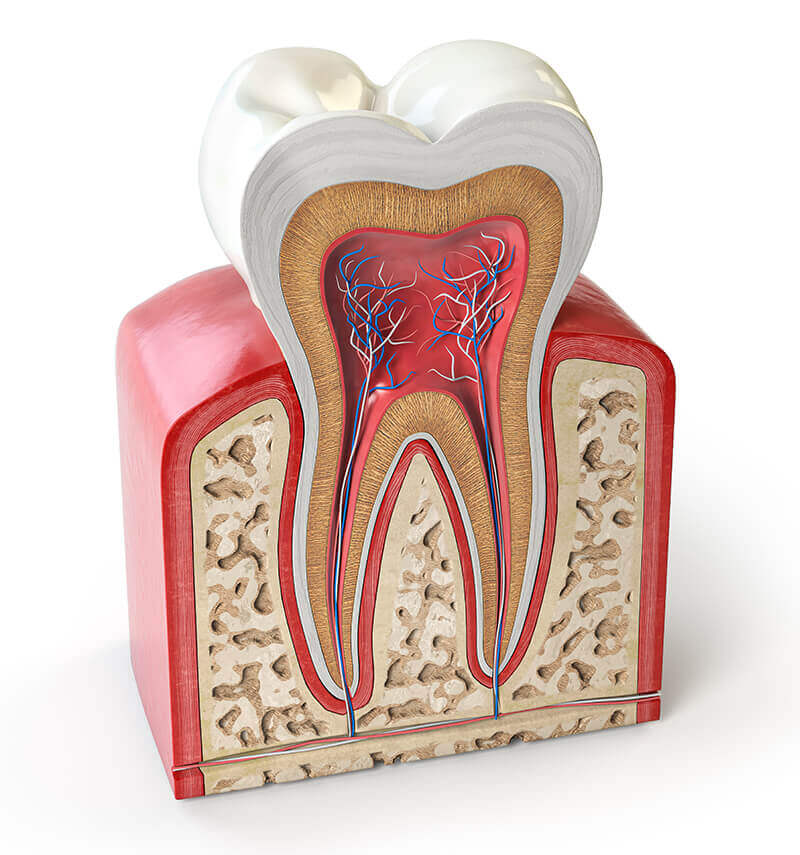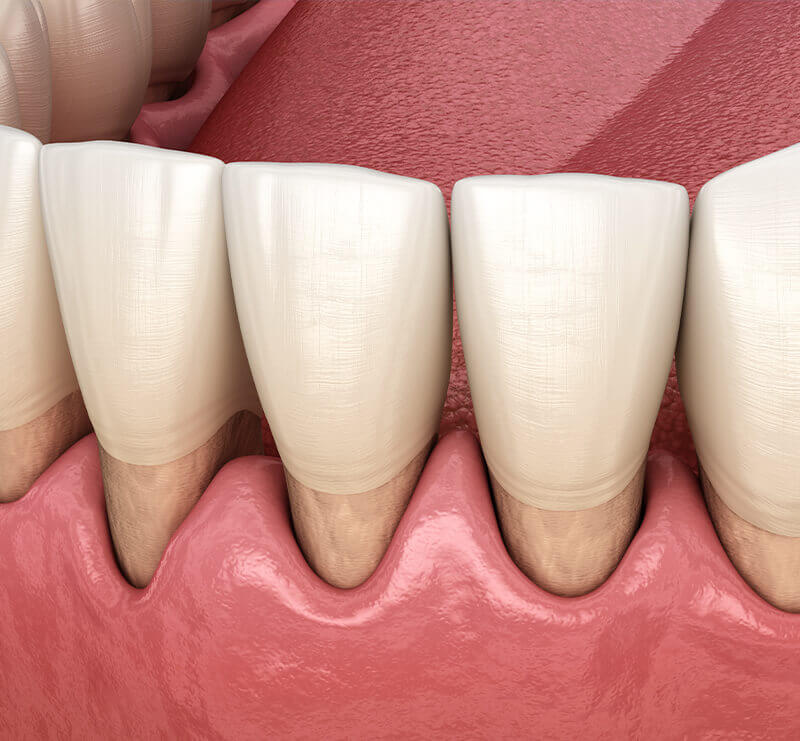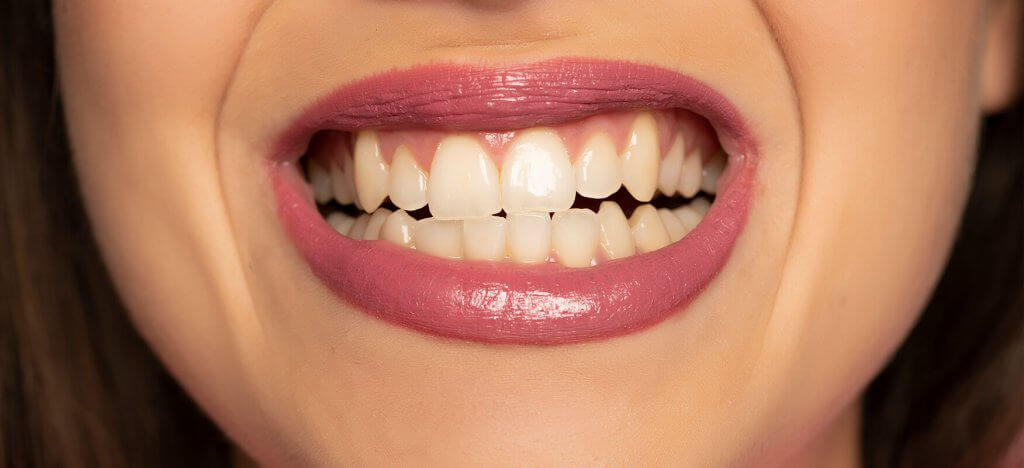Tooth sensitivity is a very common issue, affecting one third of the adult population in the UK. Unfortunately, most people chose to neglect the issue. Ignoring it can not only make everyday life harder, but it can also cause tooth loss.

In order to understand tooth sensitivity – and why it should not be left untreated -, we need to understand how a tooth is built up. The tooth ha two major sections: the root and the crown. In between these two, there is the neck. Each tooth has three layers, from inside out these are the pulp cavity, the dentin, and the enamel. However, enamel only covers the crown part, the root and neck are protected by cement. Sadly, this cement layer is not as durable as enamel. If the cement layer is damaged, the dentin surface becomes exposed. This surface is covered with thousands of microscopic tunnels, filled with liquid. This liquid reacts to hot and cold sensations, stimulating the nerves inside the tooth. That is why we feel sudden, sharp pain.
The causes
Tooth sensitivity is caused by gum recession in most of the cases. If you wish to avoid it, make sure to keep the most common causes in mind:

- gum diseases
- bad tooth brushing technique (too strong, wrong angle)
- rushed orthodontic treatment
- hormonal issues (menopauza, pregnancy)
- bad occlusion (the upper and the lower set of teeth don`t meet where they supposed to)

However, there could be other reasons for tooth sensitivity, such as:
- Untreated, damaged tooth
- inefficient toothpaste
- too much mouthwash
- grinding
- tooth decay
- acidic food or drink
The treatment

Whatever the reason may be, tooth sensitivity should never be neglected. If left untreated, they van easily lead to tooth loss. If you are experiencing sharp, sudden pain when eating or drinking hot or cold, breathing in cold air, or during brushing your teeth, you are most probably having tooth sensitivity issues. The first course of action should be contacting a dentist. After treating the tooth, the dentist will be able to recommend special toothpastes, to make sure the problem is gone for good. These toothpastes can cover the exposed dentin, providing a new layer of defense to it. It is also recommended to use a super soft toothbrush, and to learn the proper way of cleaning the teeth with it. Avoid consuming sodas, or any food/drink with acid in them.
However, there are cases when only a specialist can help. The dentist may use a special fluorid-laden topcoat, to seal the neck part of the tooth. If the exposure is bigger, but the tooth can still be saved, the dentist can also apply filling material on the exposed area.